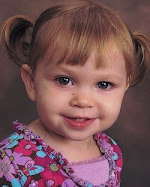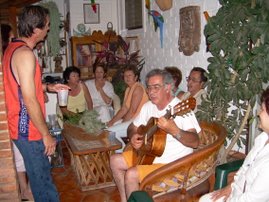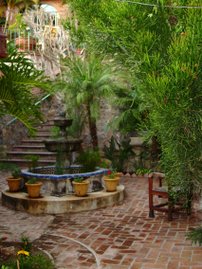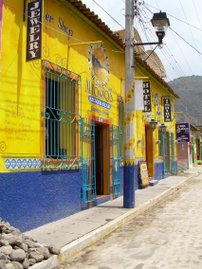
The Lake Chapala area has been a haven for expatriates from North America and Europe since the early part of the twentieth century. In the early days, it drew mostly artists and writers. The old Posada on the Ajijic waterfront, and the old hotels in Chapala, provided lodging and watering holes for such writers as D. H. Lawrence, Somerset Maugham, and Tennessee Williams. D. H. Lawrence's novel The Plumed Serpent takes place in Chapala and the surrounding area. For thirty years, the Ajijic Writers' group has been meeting to listen to and critique writers who are here from around the world.
When we relocated here, I must admit I was a bit intimidated about attending a group with such a history. I had written a bit of poetry for many years, but had never subjected it to any serious criticism. So it was with some trepidation that I first ventured to la Nueva Posada (the New Posada) where the writers gather the first and third Friday of every month to share their writing. We meet from 10-12 then gather for lunch under the big rubber tree.
Each writer is given up to ten minutes to read what he or she has been working on. If a writer goes too long, they are politely told to wrap it up, as we usually have more writers on the list to read than we have time for. I'd estimate that we regularly get between 30 and 50 writers, depending on the time of year.
Most of the people read fiction, either short stories or portions of novels. Some read non-fiction pieces, often travel pieces or other essays of interest to a larger community. There are some poets who read regularly as well. When I first attended the group last summer, I was surprised by two things: (1) the overall high quality of the writing, and (2) the accepting attitude and helpful criticism offered by the group. I immediately felt comfortable and decided to read at the next session.
I was even more surprised to find that most people in the group genuinely liked my poetry and gave me positive comments about it. But the best thing for me about the group is how much I am learning about writing fiction. I have not yet tried to write fiction, but I am thinking about it.
There are some very interesting people who attend this group. It is moderated by Alejandro Grattan, the publisher of the local English-language magazine El Ojo del Lago(The Eye of the Lake), who was, for many years, a screenwriter in Hollywood. He also happens to be an excellent critic and I have learned a lot just listing to his pointed criticism of other writers. He has published a number of my poems in the Ojo, and when I sent him a non-fiction piece about using critical thinking as an expat living here, he asked if I'd make it into a monthly column which he wanted to call 'Uncommon Common Sense." I have been writing this column since January. (I have a link to this column, and to the Ojo on the left column at the beginning of this blog.)
Jim Tipton is also an excellent writer who has written many articles for local magazines, fiction and poetry. I have been inspired by him to try my hand at Haiku. Jim, and many others, have published in many publications, and many have published fiction and poetry books.
In the photo below, on the far left is Karen Blue who has written a very popular book called Midlife Mavericks, which is a collection of stories about single women who decided to move to Mexico. Next to here is Canadian Neil McKinnon, author of Tuckhoe Slidebottle, a collection of humorous short stories. He is a very funny writer. At the end of the table, wearing the white baseball cap is Alejandro Grattan.
 Reading below is Stan (I don't remember his last name) who writes mostly poetry. A few years ago, he moved to Guatemala and word was received here at Lakeside that he had died. Some friends organized and held a memorial service for him. Everyone was surprised when he showed up again few months later, and it has been the source of much hilarity in the Writers' Group.
Reading below is Stan (I don't remember his last name) who writes mostly poetry. A few years ago, he moved to Guatemala and word was received here at Lakeside that he had died. Some friends organized and held a memorial service for him. Everyone was surprised when he showed up again few months later, and it has been the source of much hilarity in the Writers' Group. 
Below my friend Jim Rambo reads a piece written by another friend of mine (whose back you can see in the foreground) Sheldon James. Sheldon has a tremor and can't read himself easily. Sheldon was a professional musician who wrote a memoir of his life on the road as a musician. Jim Rambo was a prosecutor in Wilmington, Delaware who writes poetry, fiction, and non-fiction. Some of his most gripping pieces are his true-life memoirs about some cases he prosecuted in his previous life. Sheldon attends our UU fellowship, and Jim took over my English class for me when I went back to visit the US last spring.

As you can imagine, I look forward to the writer's group every two weeks and have met some interesting and vibrant people there.
Below is a copy of the recent review I wrote of Sheldon's book:
Jazzman
SAXOPHONE PLAYER: Notes from a Transient Musician
by Sheldon James
For El Ojo del Lago
June 2008
Sheldon is a retired musician. His professional life was as a saxophonist in many bands over more than fifty years. This collection includes seventeen stories from his years on the road and his relationships with many colorful characters. Some of the memories are poignant and sad, others uproariously funny, but all are focus on Sheldon’s imperfect humanity and benefit from his unerring eye for detail. The book includes photos from Sheldon’s career, and ends with six additional stories from other aspects of Sheldon’s life, including his life in
It’s clear to me that life as a musician during the big band era, and beyond, was not for everyone. It was not always profitable. The travel schedule was grueling. The food was often bad, and Sheldon does not hold back when describing some of the unique characters with whom he worked. But what comes through, in all the stories, is his enthusiasm for life and his dedication to music.
Some of the most notable stories are about Sheldon’s experiences with some of the music industry’s giants. He describes his private meeting, as an aspiring jazz musician, with Louis “Satchmo” Armstrong. He describes seeing the great Charlie Parker, the Bird, diminished by drugs and alcohol, in a pathetic performance during the last year of his life. And, perhaps in his most memorable story, Sheldon shares the heartrending story of his young daughter Claudia’s battle with cancer, and the very special relationship she formed with Sonny Bono, before she died.
Of course, most of the “cats” in Sheldon’s book are less well-known, but perhaps even more interesting. The life of a musician is that of a hustler: hustling for work, for a drink, for a room, even for a pretty girl’s attention. The road musician is always looking for his next gig, learning music on the fly, and having to act confident even when he’s feeling exhausted and vulnerable. Sheldon’s characters help him recreate his world, and he’s not afraid to reveal his feelings. He’s lost many good friends, and he still remembers most of them with a tear and a smile.
Sheldon is a good writer, and a long-time member of the Ajijic Writers’ Group. His stories are concise, full of dialogue, and interesting. They are true, as far as Sheldon remembers, and when they’re not literally true, they have been enhanced only by Sheldon’s wish to make his art more perfect.
Copies of Sheldon’s book are still available, and can be purchased from the author.



































































No comments:
Post a Comment